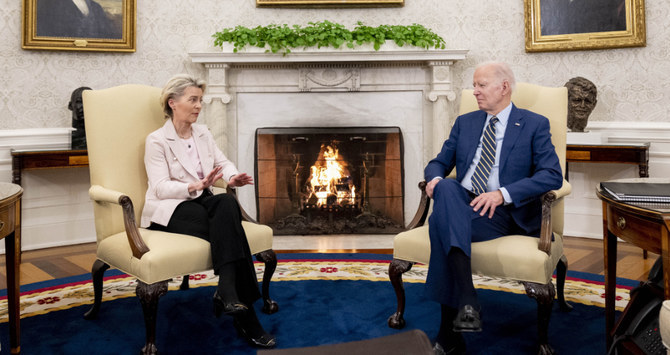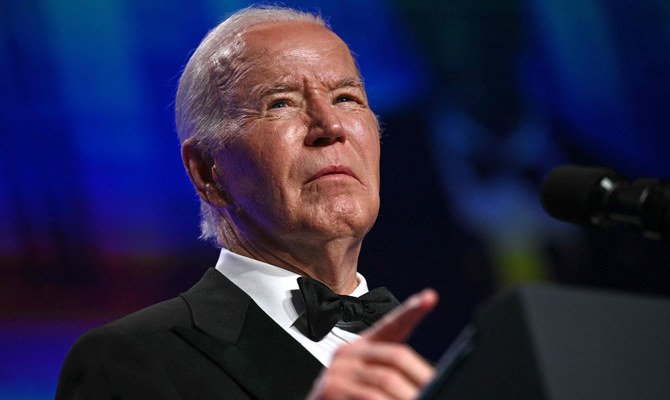
The Iranian regime has escalated its military adventurism and belligerence in the region. And as long as the Biden administration does not take a firmer stance toward the theocratic establishment, the Islamic Republic’s destructive behavior will only increase.
For instance, the US recently warned that there is concern about Iran posing a threat to Saudi Arabia. The National Security Council pointed out in a statement last week: “We are concerned about the threat picture, and we remain in constant contact through military and intelligence channels with the Saudis. We will not hesitate to act in the defense of our interests and partners in the region.”
It is critical to point out that the Iranian regime often deploys its proxies and militia groups to target other nations. One of Tehran’s staunchest allies, the Houthis, has repeatedly targeted Saudi Arabia. For example, in May last year, the terror group launched an explosive-laden drone toward a military airbase in the southern Saudi city of Khamis Mushait. It also claimed responsibility for the 2019 attacks on two Aramco plants located in the heart of Saudi Arabia’s oil industry — the world"s biggest oil processing facility at Abqaiq, near Dammam, and the country’s second-largest oilfield at Khurais. More than 40 drones and missiles were reportedly launched by the Houthis at Saudi Arabia in February 2021 alone.
The Iranian-backed militia group has also attacked the UAE. In January this year, the Houthis launched a military attack on Abu Dhabi, blowing up three oil tanker trucks and killing three people. The group, which, according to a Yemeni government intelligence report, “works closely” with Al Qaeda and Daesh, also seemingly commits crimes against humanity. It has reportedly killed and injured more than 17,500 civilians since 2015 — and it recruits, injures and kills children.
Unfortunately, the Biden administration has granted a crucial concession to the Houthis despite evidence that the Iranian regime was delivering sophisticated weapons to the group. In January 2021, the White House suspended some of the anti-terrorism sanctions on the Houthis and soon after revoked the designation of the militia as a terrorist group.
This appeasement policy was, of course, a significant victory for the Iranian leaders, but it came at a huge cost for countries such as Saudi Arabia, which is the main target of the Houthis’ rocket and drone attacks. In fact, just two days after removing the Houthis from the list of Foreign Terrorist Organizations, the State Department had to call on the Houthis to “immediately cease attacks impacting civilian areas inside Saudi Arabia and to halt any new military offensives inside Yemen.”
The US’ appeasement policy came at a huge cost for countries such as Saudi Arabia.
Dr. Majid Rafizadeh
By removing Iran’s proxy from the terrorist list and cutting off US support to efforts to confront the militia group, the Biden administration emboldened the Iranian regime, which in turn ratcheted up the smuggling and delivery of weapons to the militia.
The UAE this year urged the US administration to reinstate the terrorist designation, but the Biden administration has yet to take strong action. By not redesignating the Houthis as a terrorist organization, the US is allowing the Iranian regime to become more empowered to escalate its threats and increase its influence in other countries in the region through its militia and terror groups. And in the meantime, the Houthis are fortunate to have the Tehran regime as such a powerful ally, since their Iranian backers will not let them run out of ammunition. The sophisticated drones and missiles that the Houthis use most likely come from Iran, which has recognized the terror group as the official government of Yemen.
The Biden administration ought to recognize the fact that, since 1979, the Iranian regime has been perfecting its strategies for infringing on the sovereignty of foreign nations. It exerts influence and interferes in other countries’ domestic affairs in order to advance its political, revolutionary and ideological interests.
In other words, Iran is governed by a revolutionary regime whose Supreme Leader Ali Khamenei and Islamic Revolutionary Guard Corps have prioritized the regime’s fundamentalist ideology over other interests for more than four decades. As a result, soft and appeasement policies are not going to alter the core pillars and revolutionary principles of the Islamic Republic. The political establishment of ruling clerics has always been incompatible with the standards, rules and laws of the international community.
The Biden administration should not view the Iranian regime only through the prism of the nuclear deal and its revival. The US must adopt a firmer policy to counter the regime’s increasing military adventurism, threats to other countries in the region and its destructive behavior at home and abroad.
• Dr. Majid Rafizadeh is a Harvard-educated Iranian-American political scientist.
Twitter: @Dr_Rafizadeh












